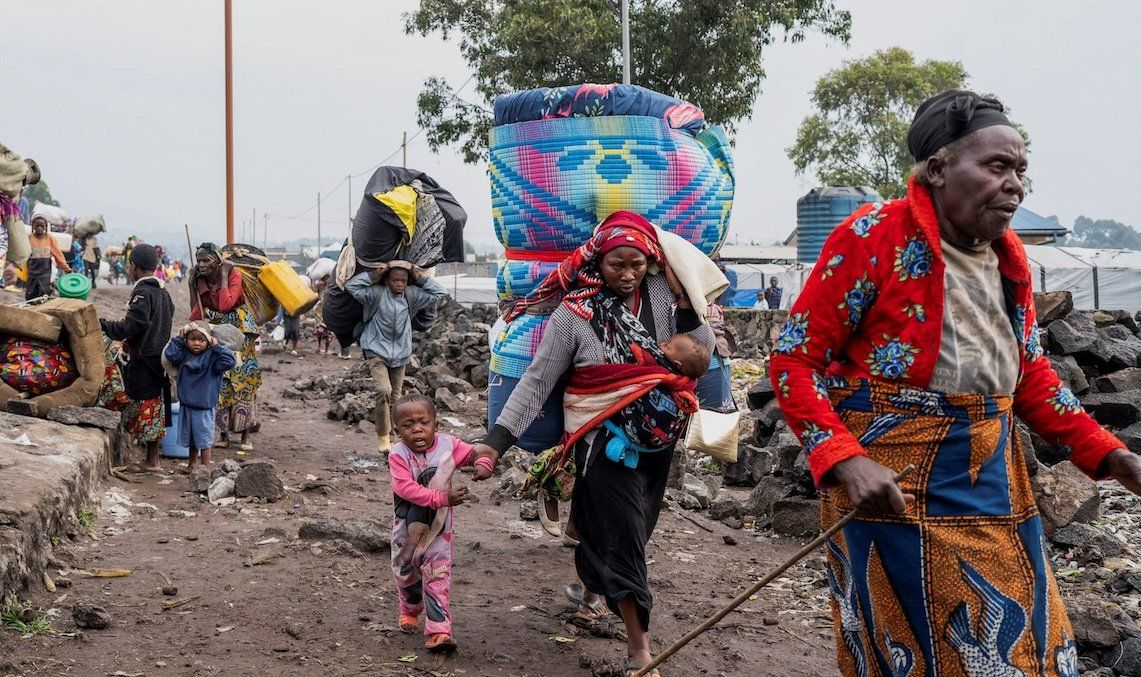Rwandan-backed M23 rebels on Monday claimed they now
control Goma, the largest city in the eastern part of the Democratic Republic of Congo. Fighting intensified in recent days following the
killing of a Congolese military governor who was visiting the frontlines on Thursday. The rebels have told DRC army personnel to
hand in their weapons to the UN peacekeeping mission. Flights are grounded, roads are blocked, and there is “mass panic and flight among the population” of one million people,
according to UN special representative for Congo
Bintou Keita.Keita made the remarks at a special meeting of the UN Security Council on Sunday, called after three peacekeepers from South Africa and Uruguay were killed in standoffs with M23. On Saturday, South African authorities reported that rebels had also killed nine more peacekeepers, from South Africa and Malawi, who were attempting to prevent the rebel advance.
What is the root of the conflict? M23, a Tutsi-led rebel movement, claims to defend Congo’s ethnic Tutsi population, but Kinshasa accuses Rwanda of using the group as a proxy for its territorial ambitions. After three years of hostilities, fighting ramped up in January and reached a breaking point on Saturday, when the DRC severed diplomatic ties with Rwanda. Over 400,000 people have been displaced since the beginning of the year, and the latest rebel advance has now sparked fears of a regional war.
